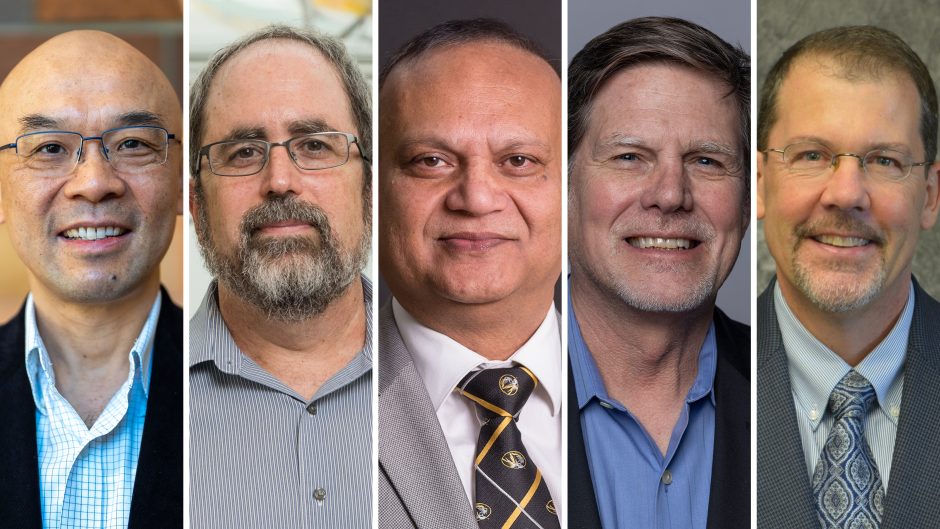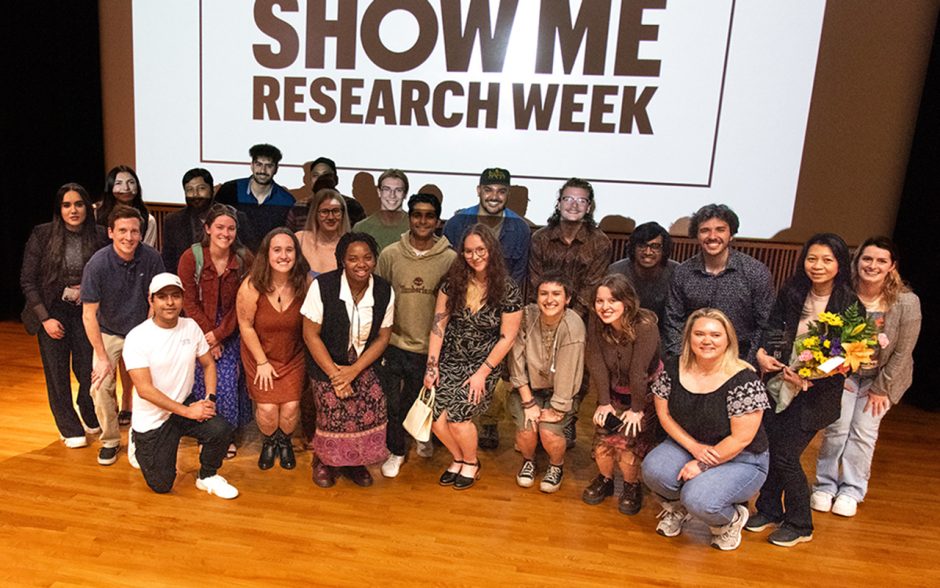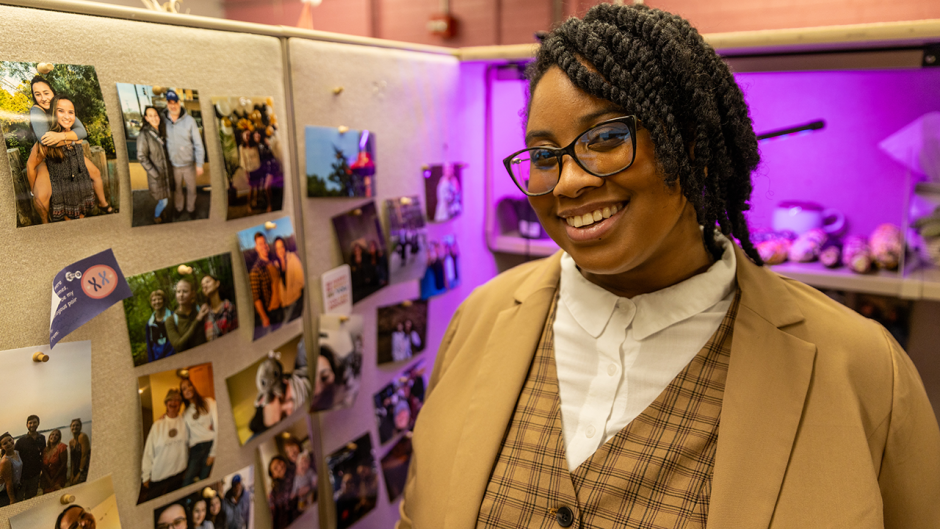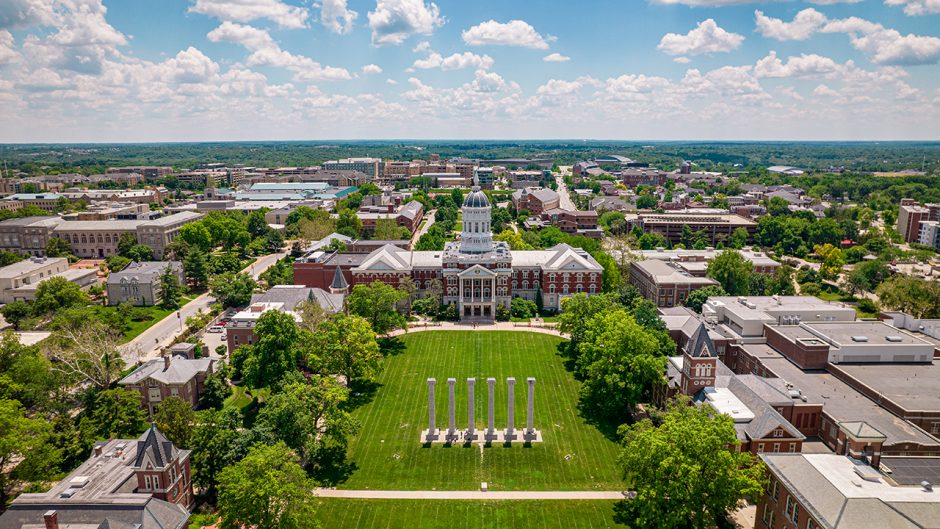
“King Billy” and “Truganini” by artist April Karlovit are part of the exhibit "It's All Relative" at PS:Gallery through March 30. According to the artist Truganini and William Lanne (known as King Billy) are considered some of the last full-blooded indigenous Tasmanians, particularly of the Oyster Cove Clan.
The era of Leave it to Beaverand Father Knows Best might be behind us. With legislative and technological developments both fueling and reflecting changes in American households, the notion of “family” is, well, relative. Age-old debates surrounding genetics and kinship — nature versus nurture, evolution versus creationism — persist. In their midst, medical experts develop innovative approaches to fertility and genetic engineering, cultural and legal forces support nontraditional families and same-sex marriage, and scientific researchers explore the biological connections between humans and fellow animals.
During Claiming Kin, the ninth annual MU Life Sciences and Society Symposium, anthropologists, historians, geneticists and other scholars gather at Mizzou to discuss the ties that bind us. Affiliated events already are under way, and the main symposium runs March 15-17, kicked off with an evocative keynote address titled “It’s Me or the In-Laws!: The Rocky Relationship Between Couples and Kin” by Stephanie Coontz, an Evergreen State College professor of history and family studies and the author of Marriage, a History: How Love Conquered Marriage.
Blended family
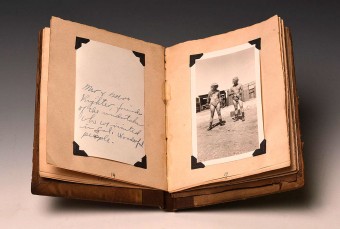
"Mr. and Mrs. Righter" by Scott McMahon is part of the juried art show "It's All Relative." The PS:Gallery exhibit was organized in conjunction with Claiming Kin, the MU Life Sciences and Society Symposium.
Interdisciplinary intermingling long has been a central tenet of the Life Sciences and Society Program, which oversees the symposium. Claiming Kin weekend talks cover a multitude of fields. Duke University research professor Charmaine Royal presents findings from genetic ancestry tests that disrupt widely accepted assumptions about race and ethnicity. Barbara Natterson, a UCLA cardiologist and the author of Zoobiquity, looks at the clues animal psychopathy provides about human mental health. University of Wisconsin English professor Theresa Kelley shares poetry by Erasmus Darwin, grandfather of Charles Darwin, that draws links between plants and humans. Bernard Chapais, a primatologist from the University of Montreal, examines the role of kinship in primate societal structures. Harvard geneticist David Haig explores genetic conflict that arises from clashes between the two different sets of genes inherited from parents — and examines how the conflict affects childhood development.
Who’s your daddy?
Two symposium speakers focus on the idea that children can have more than two parents — both biologically and socially. Charis Thompson, a professor of gender and women’s studies at the University of California, Berkeley, discusses the implications of a new reproductive technology in which maternal mitochondrial DNA could be replaced with that of a donor, introducing a third biological parent in a child’s genetic makeup. Taking an anthropological approach to the subject of mutiple fathers, Mizzou professor Robert Walker talks about traditional indigenous societies in South America whose members believe more than one man contributes to the formation of a fetus — and in which children, therefore, are raised with multiple fathers.
Streak of Tigers
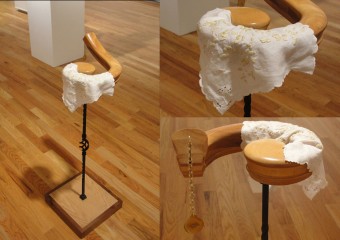
"Germ Warfare" by Eric Carlson. Winners of the juried art show "It's All Relative" will be announced during the Life Sciences and Society Symposium.
Even more than in previous Life Sciences and Society Symposia, this year’s subject lends itself to input from Mizzou experts, some newly acquired. In addition to Walker, who presents his talk “Multiple Fathers in Lowland South America" March 17, two fellow MU anthropologists give Claiming Kin presentations. Preceding the symposium, on March 12 Napoleon Chagnon, one of the nation’s best-known and most controversial anthropologists, presents his newly published scientific memoir Noble Savages: My Life Among Two Dangerous Tribes – the Yanomamo and the Anthropologists (recently featured in the New York Times Magazine), followed by a book signing. In a March 16 symposium talk titled “Kinship Mitigates Violent Conflict” his colleague Martin Daly discusses theories of social evolution and their relevance to modern human behavior and family violence. Chagnon is a member of the prestigious National Academy of Sciences, and Daly belongs to its Canadian counterpart, the Royal Society of Canada. Both joined the MU faculty this year.
Extended family
Claiming Kin events reach beyond the three-day symposium — and beyond Mizzou — with films, exhibits and talks designed to engage the community.
- PS:Gallery – The downtown gallery hosts a juried art show titled “It’s All Relative” March 2-30. Winners are announced during the symposium, and their work is projected onto screens during the talks. Stop by the gallery at 1025 E. Walnut to see the show.
- Ragtag Cinema – Columbia’s indie movie theater shows the 2011 film Project Nim, a documentary about a chimpanzee who in the 1970s was raised like a human child as part of an experiment to determine whether nonhuman primates could learn to communicate with language. The screening begins at 5:30 p.m. Thursday, March 7 at 10 Hitt St. A discussion with MU anthropology professor Libby Cowgill follows.
- Ellis Library – The MU Libraries Division of Special Collections, Archives and Rare Books presents “Kindred Kingdoms: Families in Flora, Fauna, and Fiction,” an exhibit of rare books to illustrating changing perceptions of humans’ relationships to plants and animals. See the collection March 4-29 in the Ellis Library Colonnade.
Parental advisory
Life Science and Society doesn’t shy away from controversy. In recent years symposium talks have addressed feather-ruffling issues such as genetically modified foods and neuroethics. With discussions of genetic engineering, evolution and nontraditional families, this year’s event is likely to follow suit. Stefani Engelstein, symposium planning committee co-chair and director of the Life Sciences and Society Program, says a multiplicity of viewpoints is welcome. “There are often people in the audience who disagree with a particular speaker or another and ask pressing questions,” she says. “That’s part of what makes the symposium interesting.”
Relative success
Since the symposium’s 2004 inception, attendance has increased annually and steadily. The keynote address attracts audiences of nearly 1,000 people, and last year 665 attendees registered for weekend talks. Symposium-goers from out of town return to Columbia year after year for more events, and they spread the word to friends and colleagues. Thanks to support from Mizzou Advantage and a multitude of other sponsors, the symposium and all affiliated events are free and open to the public.
Want to go? Register online.

